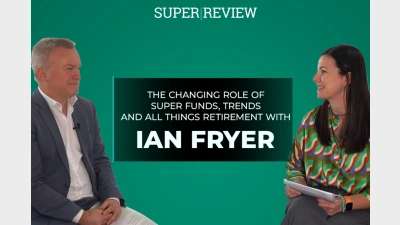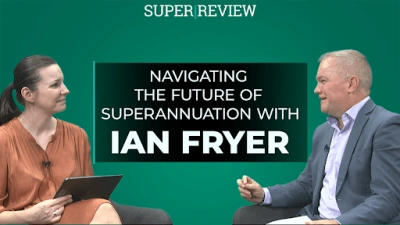Politics and policy will define super debate in 2018



Mike Taylor writes that if the Government succeeds in folding the Superannuation Complaints Tribunal into the proposed new Australian Financial Complaints Authority it will be removing a system that has served the industry for nearly a quarter of a century.
When the Keating Labor Government introduced the Superannuation Guarantee legislation in 1992 it was only a few short months later that, in recognition of the complexity of superannuation, it put in place the legislation necessary to establish the Superannuation Complaints Tribunal (SCT).
The Superannuation (Resolution of Complaints) Act 1993 actually came into force in 1994 and represented the Keating Government’s recognition that the superannuation guarantee represented a compulsory savings regime and that this, in turn, justified the establishment of a statutorily-enabled external dispute resolution (EDR) body.
What needs to be understood about the SCT is that it is a body which was established well before the Australian Securities and Investments Commission (ASIC) in its current form and well before the advent of the Financial Ombudsman Service (FOS) and its predecessors.
ASIC is not the primary regulator responsible for superannuation and the FOS carries none of the statutory underpinnings of the SCT, but notwithstanding all of this, the Government has committed to including the SCT within its so-called one-stop-shop for external dispute resolution in the financial services industry – the Australian Financial Complaints Authority (AFCA).
The move to establish the AFCA also must be weighed against the Government’s decision to change the funding of ASIC to user-pays – something which has direct implications for the funding of the SCT which, while it is established and operates under its own legislation, has been required to rely on ASIC as the conduit for the flow of its funding and resourcing.
The immediate past chairman of ASIC, Greg Medcraft was the most vocal and advocate of the industry funding model for the regulator and it was under his extended tenure at the helm of ASIC that the SCT encountered the funding issues acknowledged not only in the dissenting report of the Labor members of the Senate Economics Legislation Committee, but also within the report of the Financial System Inquiry (FSI).
The problem for the Government in implementing an industry funding model for ASIC is that it complicates the funding arrangements for the SCT – something which can be addressed if it is encapsulated within AFCA, which will be run as a company and therefore largely off the Government’s Budget funding bottom line.
As the Parliamentary year draws to a close, the Government’s legislation establishing the AFCA remains to pass both houses of the Parliament and there is no agreement between the major parties that it should do so unamended.
When the Senate Economics Legislation Committee in late October held an inquiry into the AFCA legislation it served to highlight the degree to which the Australian Labor Party senators, reflecting the views of a broad cross-section of the superannuation industry, was opposed to including the SCT in the new AFCA structure.
The dissenting report published by the Labor members of the Committee strongly backed retaining the SCT as an entity separate to the ombudsman-type arrangements which have applied to other sections of the financial services industry.
The dissenting report baldly stated from the outset that, “the [Senate] inquiry has clearly shown that the Government’s new ‘one-stop-shop’ complaints authority will not have any new or additional powers that existing disputes resolution bodies don’t already have”.
“The truth is that in relation to non-superannuation disputes, this bill is largely a rebranding exercise,” the Labor Senators said.
“In relation to superannuation disputes, which are currently dealt with by the statutory Superannuation Complaints Tribunal, the bill is much worse than a rebranding exercise and will weaken outcomes and protections for consumers. Superannuation complaints should continue to be dealt with by the Superannuation Complaints Tribunal, which should not be abolished.”
The dissenting report also pointed to the broad cross-section of the superannuation industry – both industry and retail funds – who had expressed their opposition to the elimination of the SCT as a stand-alone, statutorily-empowered body.
It said stakeholder groups such as the Association of Superannuation Funds Australia (ASFA) and the Australian Institute of Superannuation Trustees (AIST) had stated that the SCT remained a superior EDR scheme.
“Stakeholders were almost unanimous in stating that problems with the SCT were around funding levels rather than its structure as a tribunal,” the dissenting report said. “The SCT itself identified a number of significant instances in which this bill would leave consumers with fewer protections when compared to the SCT. This is largely due to the proposed change from a statutory tribunal to an ombudsman scheme established by industry as a private company limited by guarantee.”
It said the major public service union, the Community and Public Sector Union (CPSU) had also presented evidence that moving the SCT into an ombudsman service would leave consumers with fewer protections and rights and that the union had stated that superannuation, being a compulsory scheme, was quite different to other contracts that people enter into when purchasing other financial services and products.
“Labor Senators believe that superannuation is not simply another financial service. The compulsory nature of savings and the long-term investment horizon mean that special care must be taken when considering policies for superannuation EDR,” the dissenting report said.
“When the SCT was established, it was decided that a tribunal was the best way to handle disputes. No persuasive evidence was received during this inquiry that demonstrated that the SCT’s arrangement was unsuitable, apart from its funding level.”
It said the only real criticism levelled against the ACT was that it had a backlog of complaints and it had been widely acknowledged that this backlog was due to staffing and funding reductions. These reductions have been allowed to occur despite the fact that the SCT’s funding is already charged to industry by a levy.
“In the 2013 Budget, the then Labor Government provided additional funding for the SCT. Since then, under the watch of the Abbott-Turnbull Government, there have been dramatic reductions to the SCT’s funding and staff,” it said. “Since the 2013-14 financial year, in which the Abbott Government came to power, staff at the SCT have been cut by almost 30 per cent.”
“Given the cuts under the current government, it is no surprise that there have been delays in resolving complaints at the SCT,” the dissenting report said. “It is unacceptable for this Government to dramatically reduce funding and staff at the SCT, and then to turn around and complain it is too slow in resolving disputes.”
“It is even more unacceptable for this Government to then use this as an excuse to abolish the body and transfer its functions to a non-government private body and to reduce consumer protections in the process.”
The degree to which the Government is pushing for the inclusion of the SCT in the AFCA is highlighted by the fact that it is pursuing the issue even while senior Treasury officials are acknowledging significant transitionary issues which may impact the industry for as long as three years.
The policy move is also being pursued despite the acknowledgement of the Government members of the Senate Committee that there did exist significant reservations about the move and that this was something the public servants overseeing the transition would have to take into account.
“The committee notes that many financial complaints, including superannuation complaints, involve more than one financial service,” the committee majority report said. “It considers accessibility to consumers to be a very high priority, and this will be best provided by a single body. For the same reason of accessibility to consumers it believes that an ombudsman is the appropriate model for dealing with all of these complaints.”
“The committee notes the concerns that some parties have expressed as to the juxtaposition of superannuation complaints and other financial complaints. The committee draws attention to the separate provisions for superannuation, which recognise that it is in some respects different from other financial transactions.”
When it came to the level of concern being expressed by the industry, the report simply stated: “The committee draws attention to the points raised in chapter 3 of this report. It suggests that the transition team should be alert to all of these, and particularly to whether they can satisfactorily be dealt with in the terms of reference for AFCA.”
“This is an important measure and is innovative in its approach. The committee is of the view that the new arrangements should be reviewed after a year and again after five years,” the Government Senators’ report said.
Recommended for you
In this Super Review Product Spotlight episode, host Maja Garaca Djurdjevic speaks with Ian Fryer, general manager at Chant West, to discuss the latest developments in superannuation.
In this new Super Review Product Spotlight episode, host Maja Garaca Djurdjevic is joined by Ian Fryer, the general manager at Chant West. Together, they explore Chant West's enduring reputation in the industry and share insights on the imminent changes in the super landscape.
While the last two years have been challenging for the superannuation industry, there is more to come in 2022 and super funds will need to rise up to the challenge.
With 20/20 hindsight, the disengagement which occurred with the introduction of the MySuper regime was a mistake which now needs to be urgently corrected.










Hi Mike,
This is a very complicated issue. So many issues have been left behind and missed that this will further distance the opportunity of people ever raising old subjects.
As an example, years ago in commenting on one of Money Managements articles, I suggested the following in an attempt to raise awareness to the benefits that so many super members had lost by taking the advertised “advice” of the industry funds, to simply swing thieir fund values over to their control because they had promised the Earth.
What I am alluding to here is the lost risk benefits, and I suggested back in about 2013:
Let us request a simple test that would be an example of what may result or in fact has already resulted from certain practices where it has been advised not to seek advice. Further, “intra-fund advice” may be biased as it is to be provided by a party (a trustee or employee) who is employed to bring members in :
1. Request each Fund that has advised people to roll their existing benefits in without advice or minimal “advice”, to provide a list of all members who recently joined and rolled in their benefits in to these Funds, to provide the following information:
2. List the members who moved their “membership” into these funds during the period of their “escalator” adverts, who have since died or become disabled.
3. Establish if they rolled their risk benefits from their previous funds.
4. Establish whether these members were warned of their potential loss of risk benefits that they had previously gained when they were insurable or through automatic acceptances.
5. Ask the dependents of these deceased members whether these members were made aware that they had forgone their benefits from their previous funds.
6. Ask the members who have since been disabled whether they were aware that they had forgone benefits from their previous funds.
7. Then ask each of the previous fund trustees what life, Tpd and Salary continuance benefits were in place under the old funds immediately prior to the transfers.
8. Establish whether these members and their beneficiaries were in a worse position after the transfers (in order to keep this test simple, leave out the fund balances or asset values in this exercise).
9. Appoint a firm of solicitors for a class action by the widows, widowers and orphans.
Regards,
Jossel